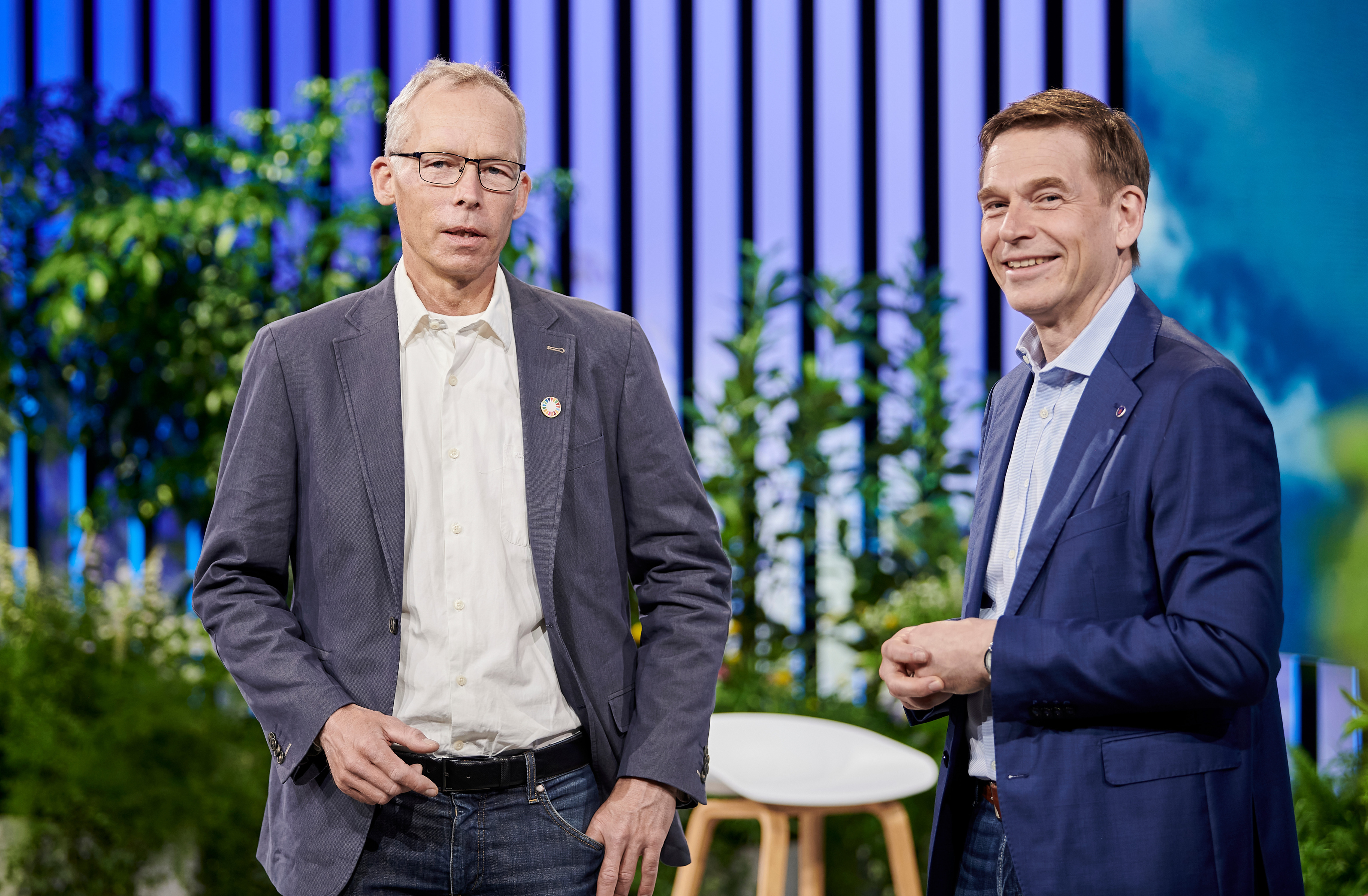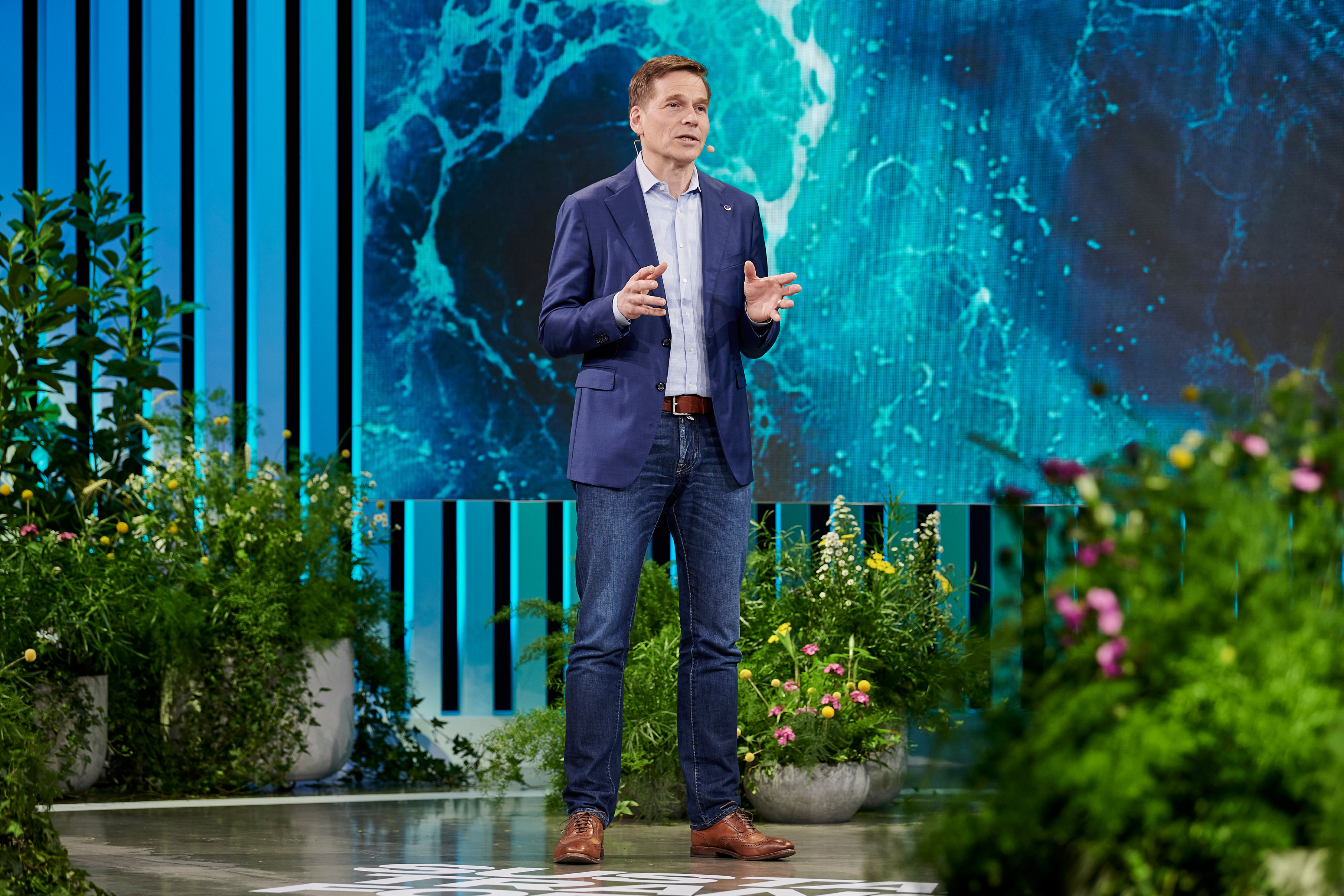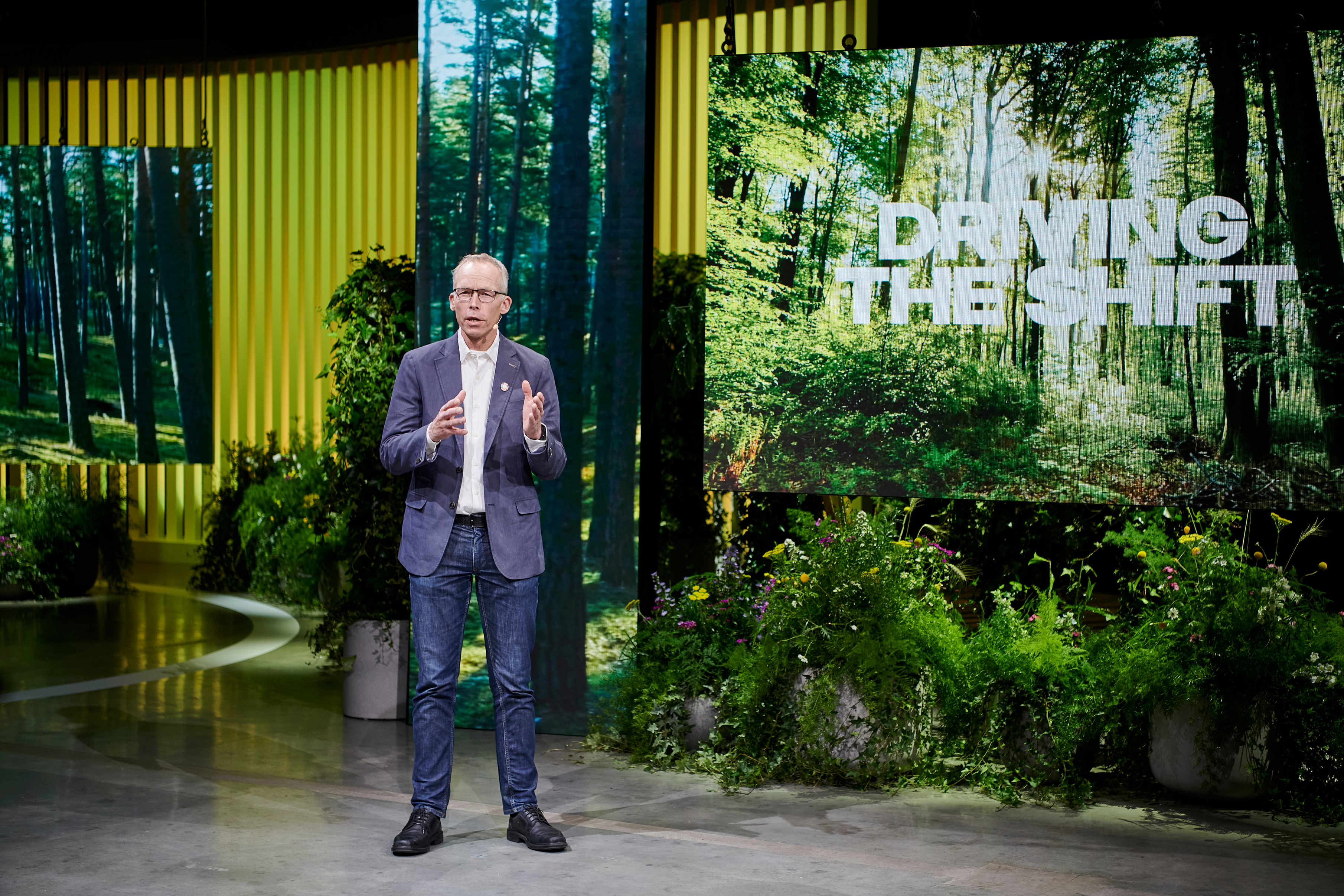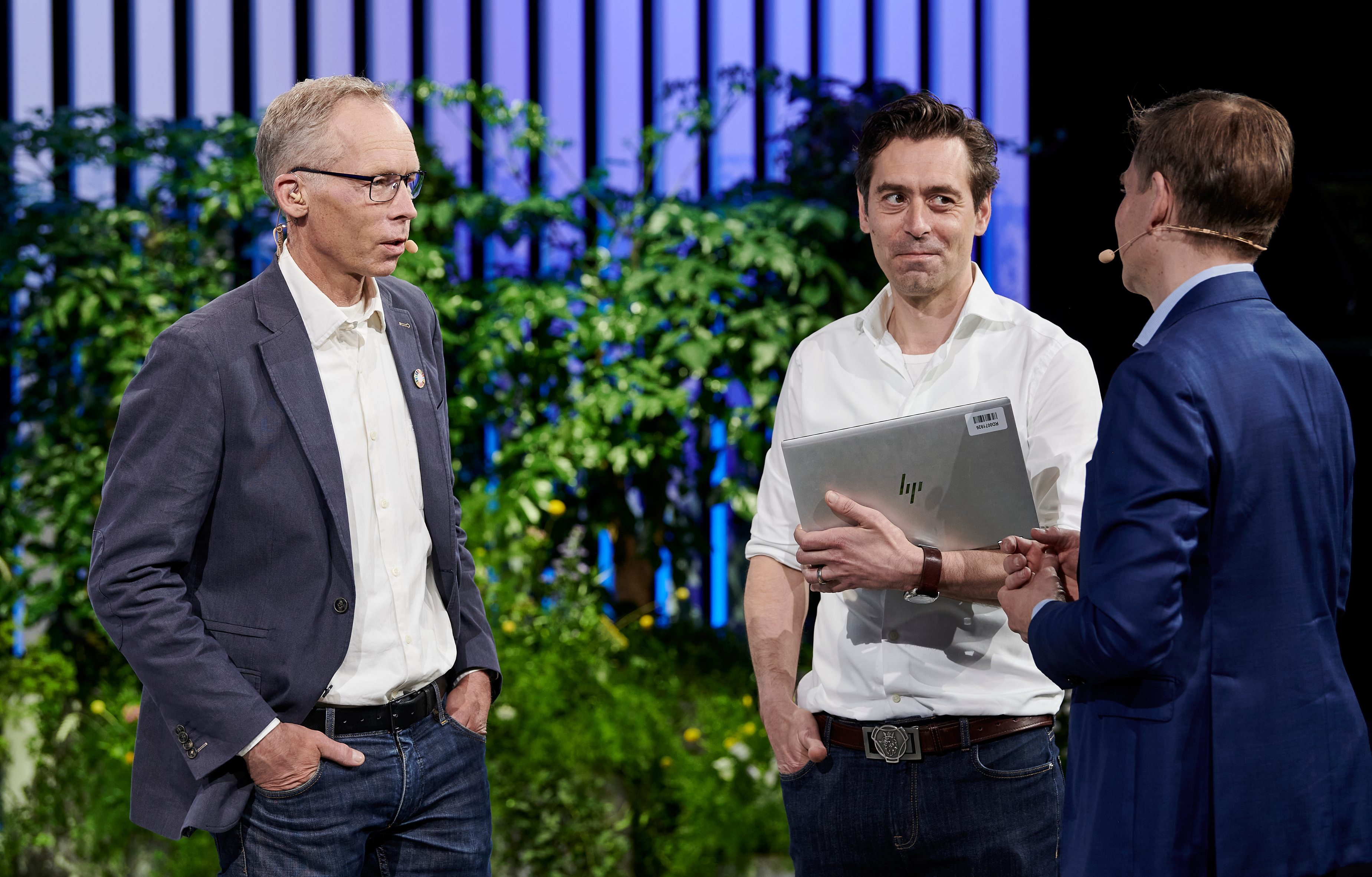
Working together to lead change in sustainable transport
28 MAY 2021
“Companies need to collaborate with their competition on climate change,” says Sir Richard Branson, an agent of change and a leading voice in the climate debate. Branson spoke at the live broadcast Sustainable Transport Forum in Stockholm, where representatives from government and business discussed at how to increase the scale and pace of change, and how partnership and collaboration can be the force the world needs.
Since transport is one of the major sources of CO2 emissions in the world - contributing to nearly a fifth of total global emissions - it is key when solving the climate crisis.
Reduce emissions with science
“At Scania, we reduce emissions in line with science, and with the Paris Agreement. These are corporate targets on the same level as our ambitions for volume and growth,” says Levin. He is confident that when it comes to Scania’s own direct global emissions, they will be at zero in ten years. Scania is part of a growing community of more than a thousand companies with a commitment to science based climate targets and challenges more players from the transport sector to join.
“We also expect governments to work together with us, and align with science in the same way. Only then will the big investment in infrastructure come, supported by a policy framework that includes an effective price on carbon and road charges based on CO2 emissions”, says Levin.
The most fundamental challenge to humanity
Global business plays a vital role as climate change presents a fundamental challenge for humanity. But the outlook is mixed. The negative impacts from production, consumption and transport are severe, worse than scientists predicted. Johan Rockström, Director of the Potsdam Institute for Climate Impact Research stresses: “We are racing towards 3 °C and beyond of global warming, with heat waves, forest fires, disease outbreaks, accelerated melting of ice, sea level rise. But on a positive note, significant progress appears in technology. Investment and legislation have surpassed expectations, especially in transport. So change is happening.”
The power of partnership
Powerful partnerships are forming right across several industries, including not only transport and buyers of transport services, but also battery and energy suppliers. Partnership is one of the galvanising forces behind the shift to sustainable transport. “For me, one of the most exciting parts of our climate work at Scania is our collaboration with others. Even with competitors that we battle with daily on the ground, we have to be able agree on what is good for the long term common objectives about what is good for the planet and people,” Levin says.
That is also something Sir Richard Branson thinks is vital: “It comes down to a group of people getting along, to work out how to collaborate to make the trucking industry more effective.” By committing to an aligned pathway to net zero emissions: “we need to create new norms of corporate leadership,” he emphasises. “The current culture of accountability in business needs to include not only numbers and performance, but people and the planet. We have the duty – and power – to lead on the solution.”




